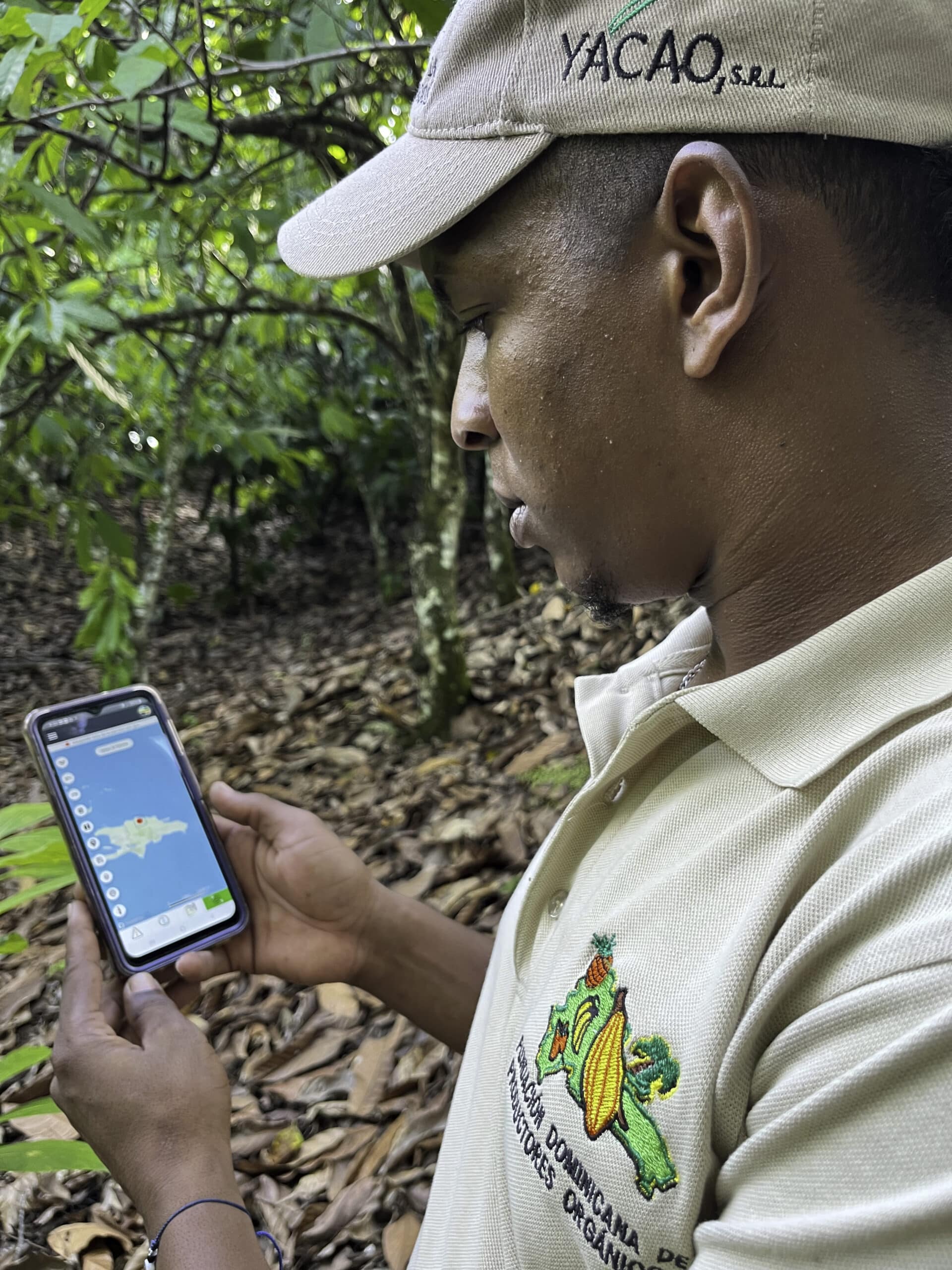Oct 16, 2024
Back in June 2024, we reported on the high cocoa prices and how we were dealing with them. Exporters and processors such as our subsidiary YACAO in the Dominican Republic continue to face very challenging conditions, particularly with regard to being able to purchase enough cocoa beans.
How do they succeed in purchasing cocoa with such high prices?
How can buyers and cooperatives on the ground buy sufficient cocoa beans under the current conditions? What strategies help them in their day-to-day business?

The YACAO team weighing fresh cocoa beans
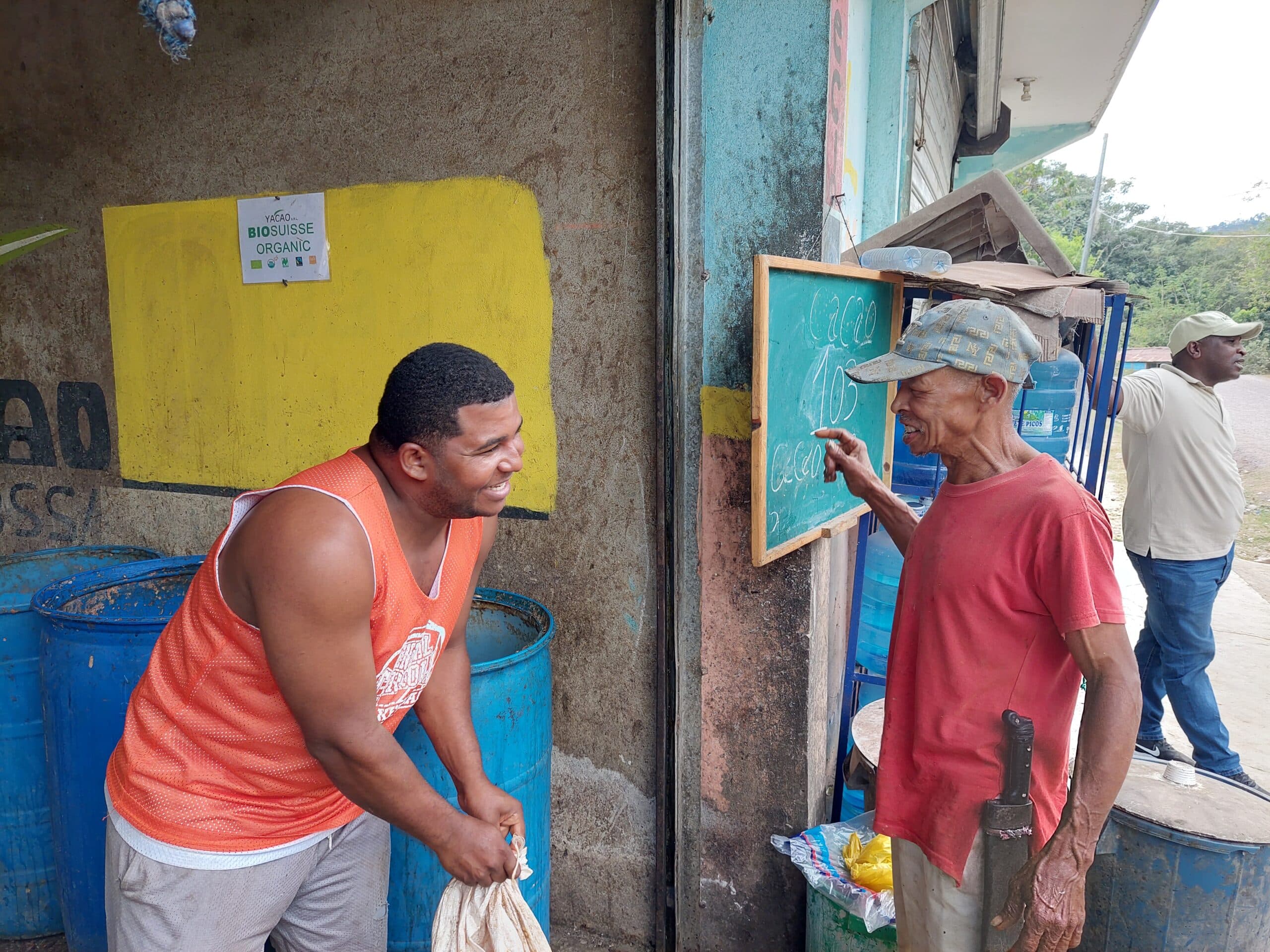
Smallholders are happy to receive a higher price (March 2024)
Frequent price adjustments
Currently, we have to react very quickly to changes on the market. Cocoa is scarce and there are many more buyers on the ground. If we set the prices too low, we will hardly get any cocoa. In this case, we must react promptly and adjust our prices upwards. In view of the volatile prices, YACAO now fixes its prices twice a week.
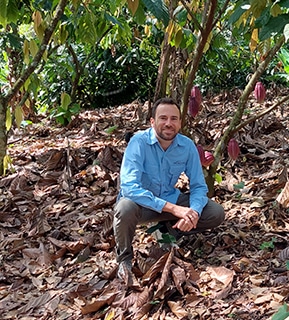
Kilian Moser, General Manager YACAO
“YACAO is one of the most transparent exporters in the Dominican Republic. Some farmers deliver everything to us without exception, others supply some to us and some to the highest bidders.”
Safe payment on site
One of the biggest challenges is to deliver the money in cash to the smallholders, in a safe manner. Many smallholders continue to prefer cash, which is not easy logistically due to the high amounts involved. Sometimes, the smallholders are escorted to a protected room in a bank, to ensure a safe transfer of the cash. Or an anonymous car without the cooperative’s logo drives out to deliver the money to the farmers. YACAO is addressing the problem of cash with incentives and is encouraging farmers to open their own bank accounts. Farmers who have a bank account and provide details of this are given priority when receiving payments.
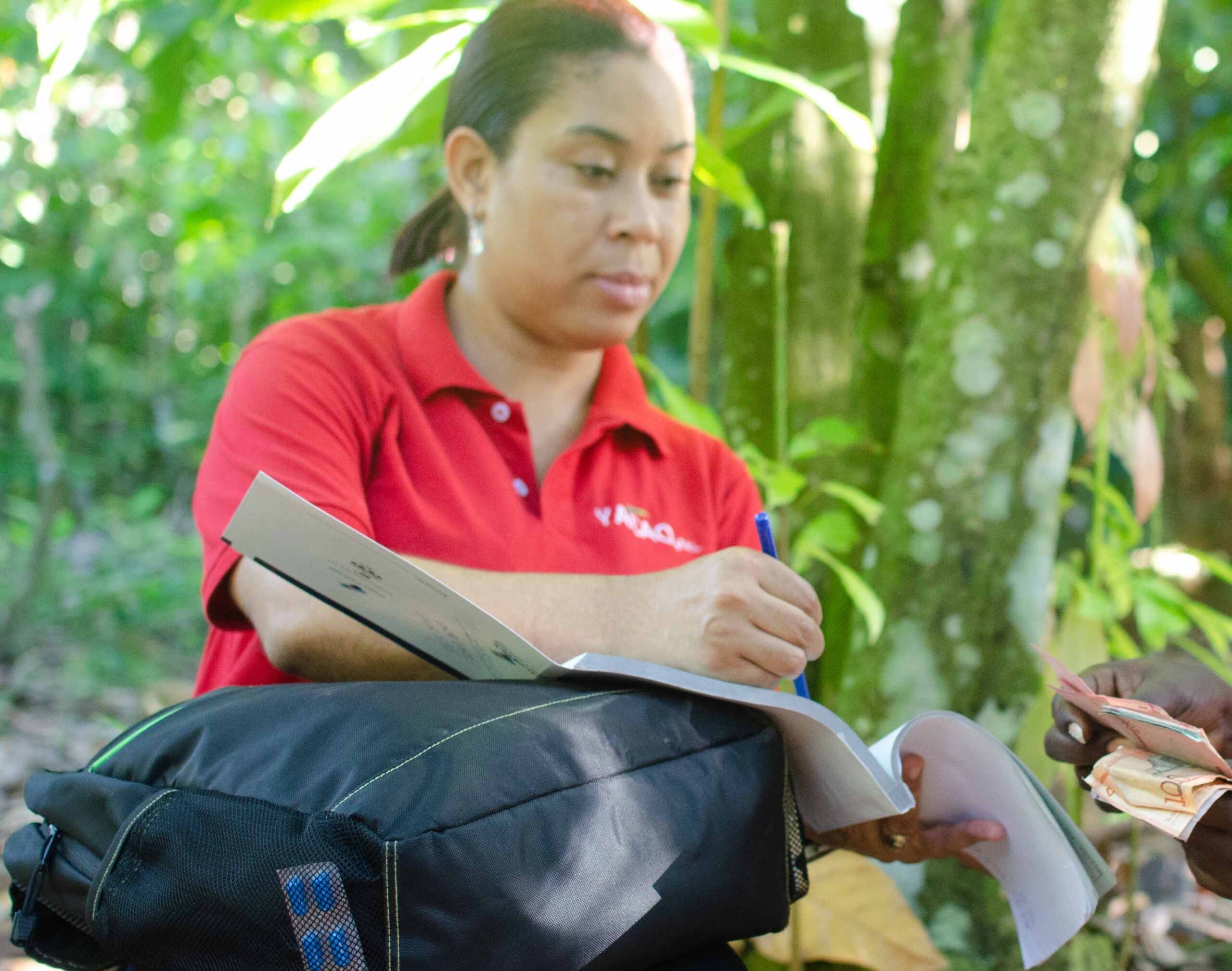
Usually, payments are done in cash
Measures to protect against theft
The high prices of cocoa tempt thieves and make it necessary to take additional security precautions. As a processor (fermentation and drying) and exporter, YACAO has doubled its security staff to guard the cocoa warehouses. However, during transport too, caution is required: The cocoa is transported as quickly as possible to the main centre and exported. This is because with the current prices, a single lorry load of cocoa beans is worth more than 200,000 USD.
«In jedem unserer vier Zentren wurde bereits eingebrochen, um Kakaobohnen zu stehlen. Dies geschah teilweise in Anwesenheit von externem Sicherheitspersonal.»
Kilian Moser, General Manager YACAO
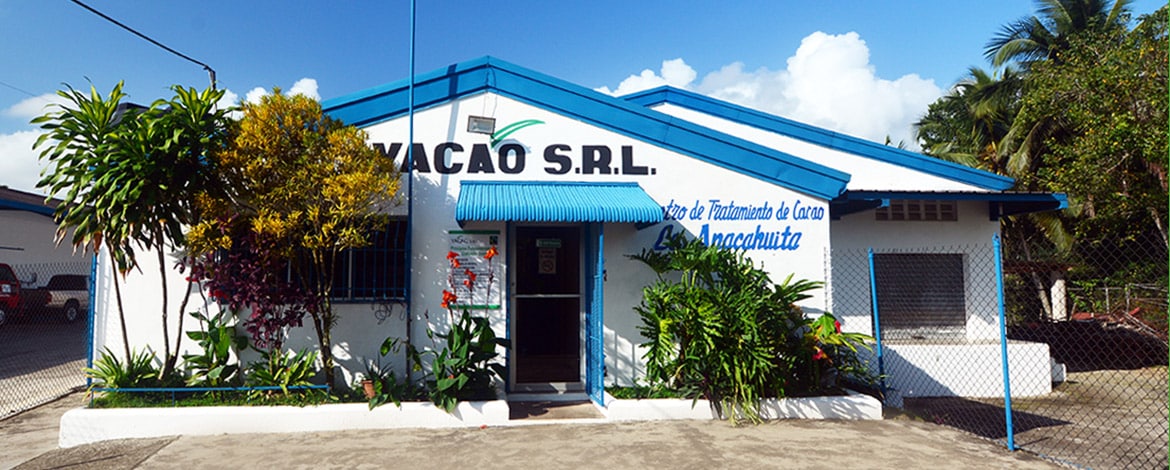
Long-term solidarity is worth it
Although the harvest yields in the Dominican Republic are definitely smaller than in the previous year, the 23/24 harvest was for YACAO the second best since its foundation in 1999. According to official sources, the company was for the second time the largest exporter of organic coca in the Dominican Republic (National Cocoa Commission Dom. Rep., harvest 23/24). This was not a given, as for many smallholders, it would be easy to sell their cocoa at a good price without organic and Fairtrade certificates. On the one hand, it helps that we have grown our partnership with the small-scale farmers over many years. At the same time, the YACAO team is taking countermeasures and has been highlighting, during conversations with the farmers, the long-term advantages and safety of the certifications.
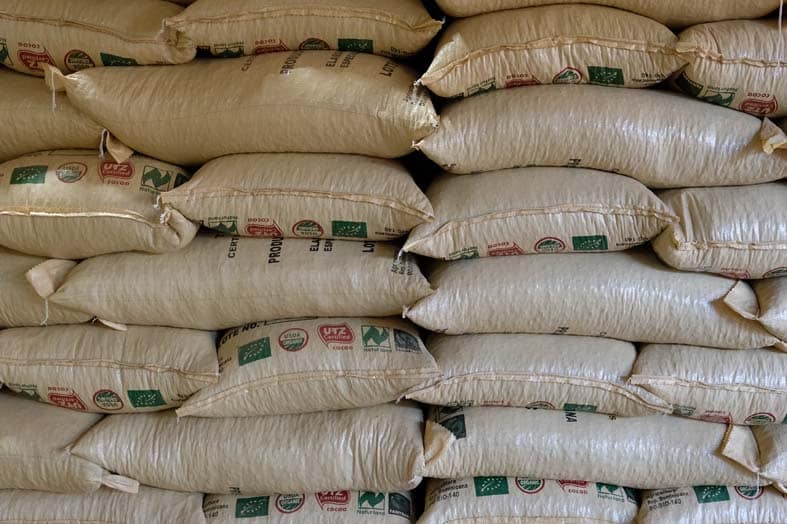
YACAO is again largest exporter of organic cocoa from the Dom. Rep.
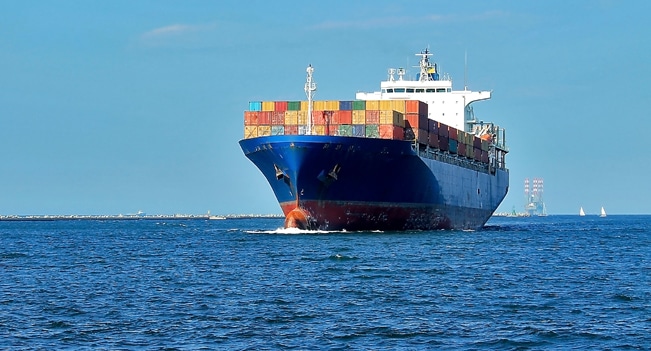
Long-term partnerships are crucial for security of supply
Growing interest of the younger generation
Many plots are still in the hands of the older generation. With the higher prices, there is growing interest by the children or grandchildren in joining the business and continuing to manage the land. However, as before, a critical size is needed to manage a plot of land economically and be able to live off it. The government too has been paying attention to the additional income and has been recording how much the farmers are earning, in order to be able to levy taxes accordingly.
Thanks to the high price of cocoa, it is worth it for farmers to invest more time in their plots – whether in the form of planting new trees, pruning or removing infestations. Thanks to this, the harvest yield per plot has been growing in the meantime.
How are the cooperatives coping with the implementation of the EUDR?
Those who do not fulfil the requirements of the EU Deforestation Regulation (EUDR) are excluded from the European Market. How do the cooperatives support the smallholders on the ground?
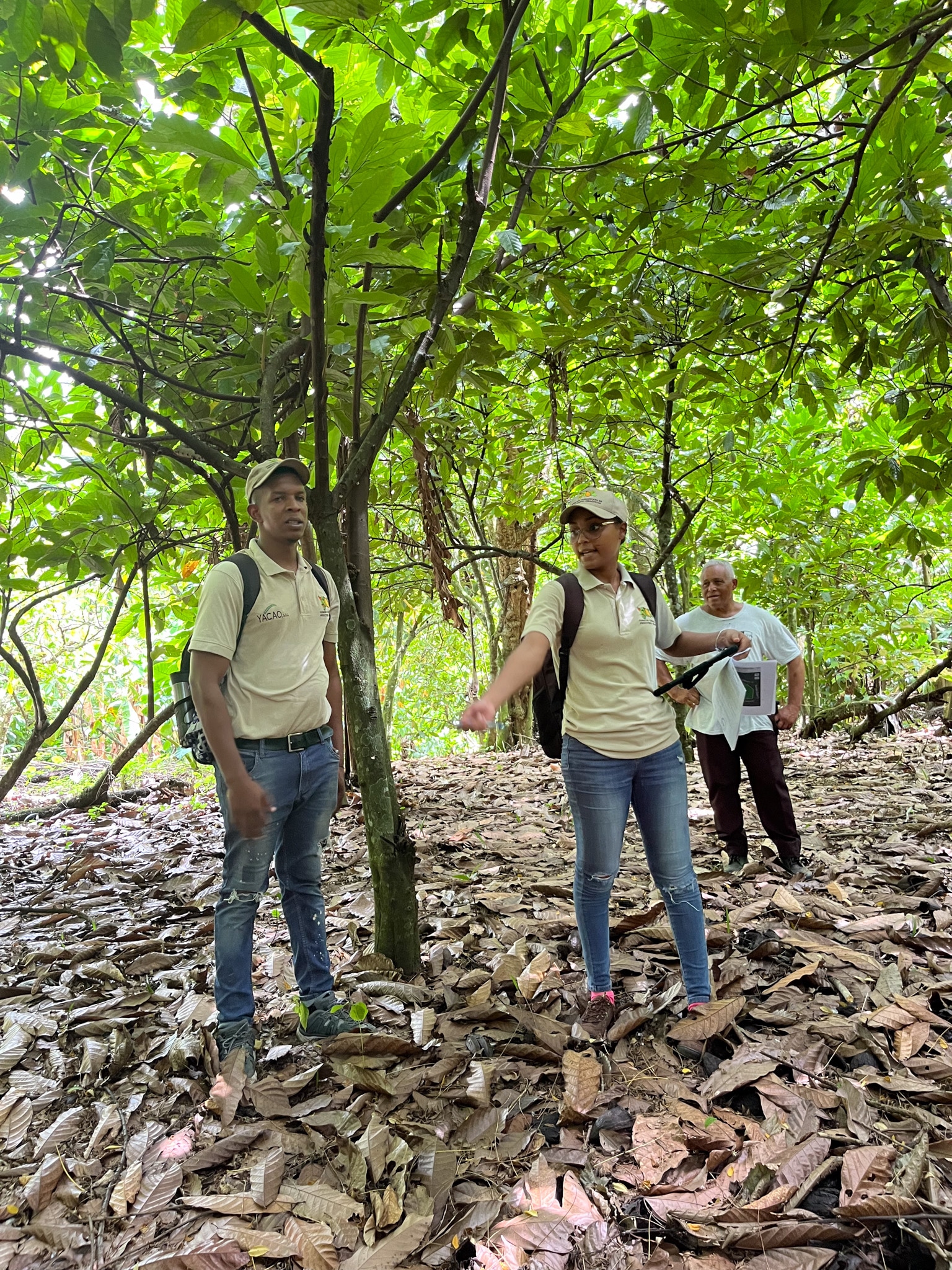
Geomapping requires (women and) manpower
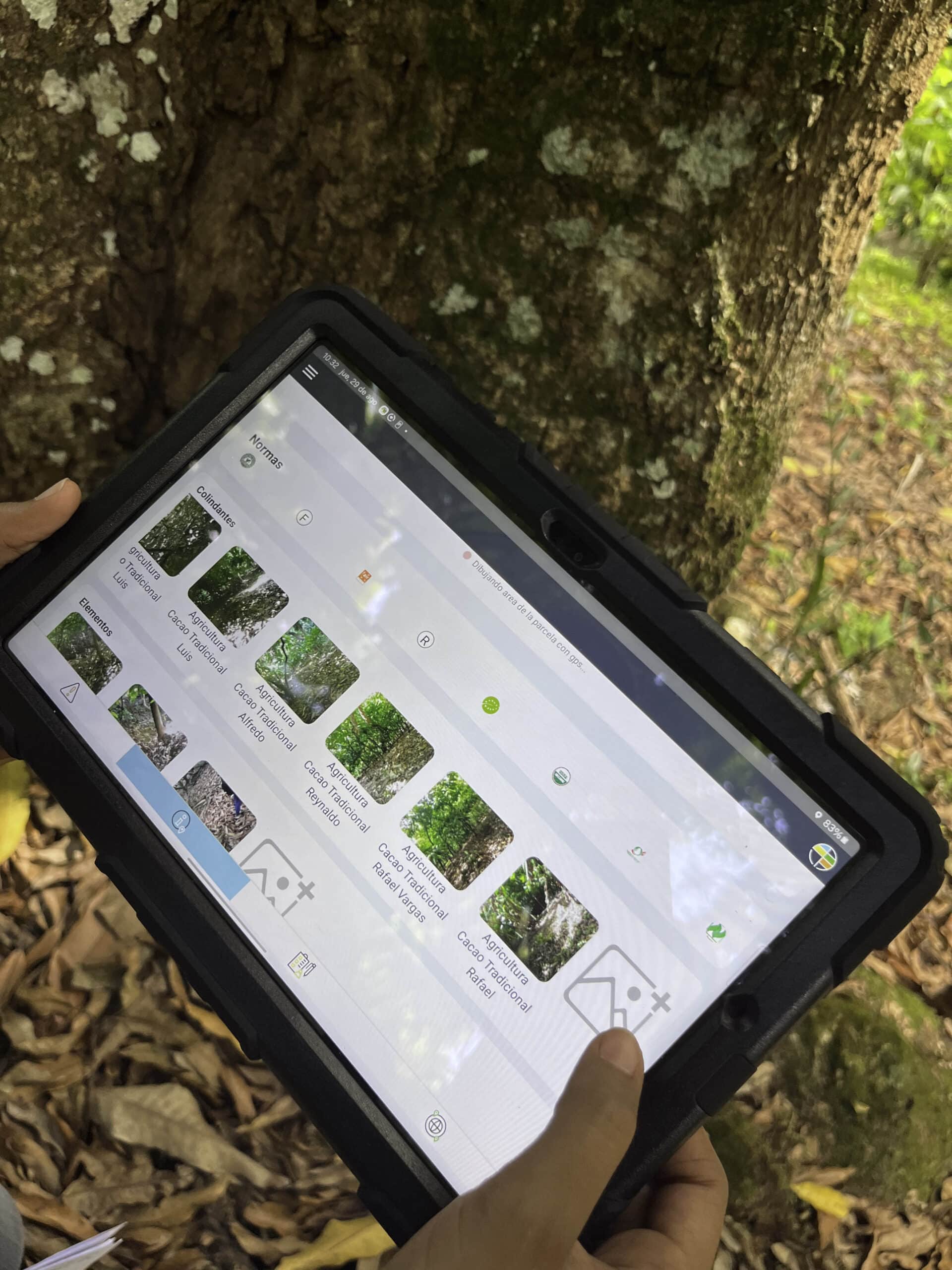
Latest technologies enable efficient data collection
The implementation of the EUDR costs time and money
Our partner, the smallholder organisation FUNDOPO, is struggling with the implementation of the EU Deforestation Regulation and needs support. In addition to day-to-day operations, numerous inspectors, so called ‘técnicos´, must be trained and sent out to record the exact locations of the cultivation areas (georeferencing or geomapping). Recording the boundaries (polygon) around each individual plot costs time and money. These additional tasks have fallen at a time when buying cocoa is already very time-consuming. For the smallholders it would be easier not to sell cocoa to Europe and thereby elude the stringent requirements of the EU Deforestation Regulation.
Recording the cultivation areas is hard work
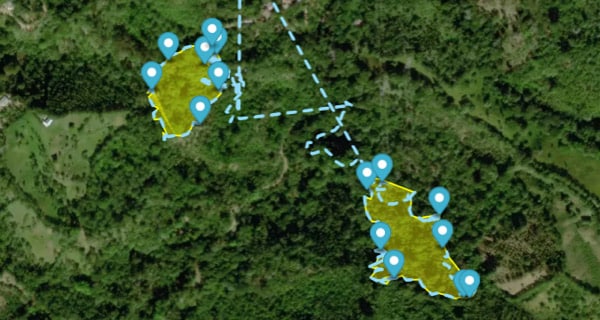
“On average, one inspector can inspect 1 to 3 plots per day, and measure the polygon at the same time. This depends on how far the plots are from one another and whether the weather plays along. In the event of rain, inspections are called off, and when it’s wet and muddy everywhere, it takes considerably longer.”
Roman Hipper, General Manager abunda+ ICS
For the geomapping, the inspectors have to hack their way with machetes through the often fragmented plots, in order to check the boundaries. The boundaries of the plots often lie where natural obstructions such as trees, escarpments or ridges make the inspection difficult. The tropical soils are often muddy and it is hard to gain a firm foothold. The amount of time required to record the acreage of 510 producers with 544 plots of land in the Zona Norte area, for example, corresponded to 272 working days. At times, up to 8 inspectors were deployed.
How does PRONATEC provide support for the implementation of the EUDR?
PRONATEC and YACAO support smallholders primarily by funding a new software that was developed for simple recording of cultivation areas. The small-scale farmers located on remote sites would have no chance of fulfilling the requirements of the EU Deforestation Regulation without assistance. The smallholder organisation FUNDOPO also funds the inspectors and thereby absorbs these costs for the small-scale farmers.
Software for recording acreage pursuant to the EUDR
Abunda+ ICS Software is a web and smartphone-based software that has been tailored specifically to our requirements. The FUNDOPO inspectors use it to record the boundaries of the cultivation areas (polygons) and connect the data with Global Forest Watch Pro. We can thus provide evidence that our cocoa comes from areas where no deforestation has taken place since 31/12/2020, and therefore complies with the EU Deforestation Regulation (EUDR).
